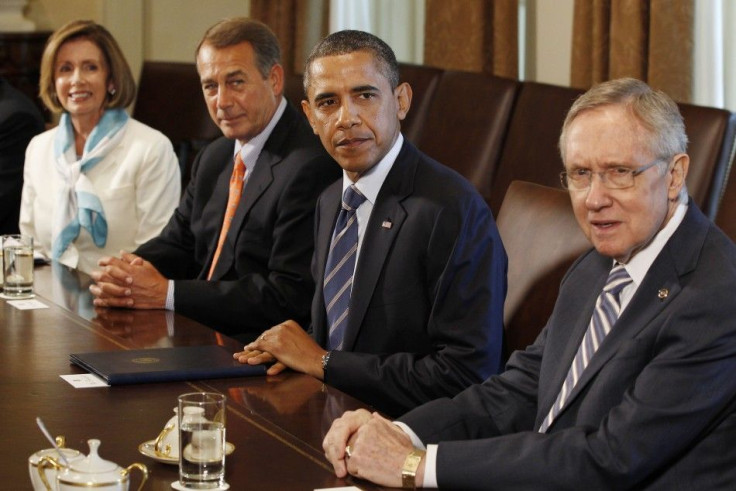Obama on Debt Talks: 'Constructive' but Gaps Remain

They're getting there. That, in a few words, perhaps best characterizes the state of the nation's debt ceiling talks.
President Barack Obama said Thursday that budget negotiations at the White House between Congressional Democrats and Republicans had been very constructive, but the two sides were still far apart on a wide range of issues, The New York Times reported Thursday.
Obama added that the talks would continue into the weekend, and that Congressional leaders would meet with him again on Sunday. Equally significant Obama said he, House Speaker John A. Boehner, and other Republican and Democratic leaders -- in other words both sides - had pledged to come to an agreement before August 2, the day the U.S. Treasury runs out of money.
Further, progress toward as much as $2 trillion in deficit savings has already been made, The Washington Post reported Thursday.
House Majority Leader and U.S. Rep. Eric Cantor, R-Va., seemed to telegraph that new optimism and constructive tone regarding the deficit reduction and the talks by saying, ahead of the White House meeting, he was willing to talk about closing loopholes in the tax code, an issue that just last week had seemed taboo. If the president wants to talk loopholes, we'll be glad to talk loopholes....We've said all along that preferences in the code aren't something that helps economic growth overall, Cantor said, The Wall Street Journal reported Thursday.
The U.S. Government borrowing authority ends on August 2. A failure by Democrats and Republicans to reach a deal on the debt ceiling could result in an event most economists for decades thought was unfathomable -- a default by the largest and most technologically advanced economy in the world.
On August 4, the U.S. Treasury Department is due to pay off $30 billion in maturing short-term debt. In theory, the United States could prioritize debt payments, but U.S. Treasury Secretary warned lawmakers in Congress Wednesday that the prioritization tactic would still cause investors to shun U.S. Treasury securities, commonly known as Treasuries.
Geithner has also repeatedly underscored that failing to raise the debt ceiling will have no constructive outcomes for the nation's fiscal condition, the task of deficit reduction, and U.S. and global stock and bond markets.
© Copyright IBTimes 2024. All rights reserved.





















